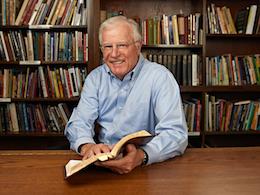This ministry is no longer available.
We're sorry that the ministry you were looking for is no longer available on Oneplace.com. However, below are some great ministries that offer related content. Enjoy the inspiration, encouragement, and Biblical challenge from these Oneplace.com ministry partners!










